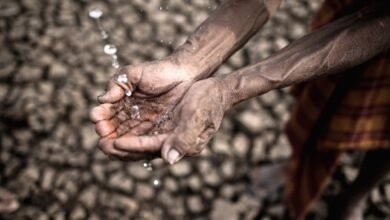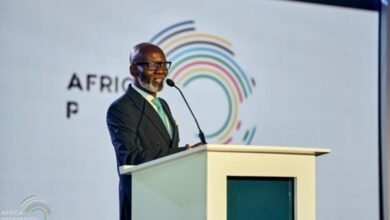African Economic Integration : Algeria takes the stage
In a rapidly changing regional context, Africa has become a strategic priority for Algeria. With continuously growing trade, a firm commitment to the African Continental Free Trade Area (AfCFTA), and continental-scale infrastructure projects, Algiers aims to strengthen its role as a driving force for economic integration and a credible partner for a united, strong, and sovereign Africa.

By Nadjoua Khelil in Algiers
Making its trade with Africa a strategic lever is Algeria’s declared ambition. Currently, its share in intra-African trade remains limited at 2.2%, concentrated 91% in oils and mineral fuels, according to the 2025 African Trade Report. Its main partners include Tunisia, South Africa, Côte d’Ivoire, Nigeria, and Senegal. While these figures show that Algeria remains a modest player in intra-African trade, they also highlight the significant potential the country seeks to transform into a lever of influence across the continent.
Making Made in Algeria a Reliable, Competitive, and Sustainable Offering for African Markets
To realize its vision of sustained Pan-African economic integration, Algeria has implemented domestic measures and launched continental-scale projects.
“Algeria has adopted a clear strategy: produce locally, export to Africa, and co-produce with our partners. To achieve this, the investment and export framework has been modernized, procedures simplified, and financing mobilized. The AfCFTA, offering a market of 1.4 billion consumers, lies at the heart of this strategy. We are also working on logistics, with land and rail corridors. Ongoing projects include the trans-Saharan Alger-Lagos road and the Central Penetrating railway network, a series of 2,039 km of tracks enhancing interconnection with Mali and Niger, as well as strategic links between Algiers-Mali and Algiers-Niger. Our goal is simple: to make Made in Algeria a reliable, competitive, and sustainable offering for African markets,” explains Souheil Guessoum, president of the Algerian Confederation of Citizen Employers (CAPC, formerly FCE), in an interview with ANA.
Algeria’s approach goes further. “The debts of 14 African countries, amounting to $1.5 billion, were canceled. This is a quiet, humble gesture that illustrates Algeria’s genuine commitment to a strong, united, and sovereign Africa,” adds Guessoum.

An Integrated Approach: Financing, Installation, Training, After-Sales Service
Today, Made in Algeria offers “real opportunities in construction, building materials, pharmaceuticals, agrifood, equipment, and even digital services,” notes Guessoum. “Our advantage lies in proximity, fast delivery, and certified quality. Beyond the product itself, we offer an integrated approach: financing, installation, training, and after-sales service. This combination makes Made in Algeria a credible value proposition for African markets.”
A Key Player, Able Not Only to Meet Local and African Market Needs but Also to Influence Regional and International Markets
Within this African integration dynamic, the IATF 2025, held in Algiers from September 4 to 10, was presented as an important milestone, offering hope for a continent seeking stability and prosperity. The event raised high expectations regarding its potential to reshape intra-African trade and provide concrete momentum for the continent’s economic ambitions.
“We expected tangible results from the IATF: export contracts, distribution partnerships, and co-production projects. Algerian companies aimed to meet their African counterparts, understand local needs, and build durable networks. Our African partners, in turn, expected Algeria to deliver reliability, consistency, after-sales services, and knowledge transfer. We therefore came with competitive products, but above all with the will to build shared value chains and create jobs across the continent,” highlighted Guessoum.
Algeria has also demonstrated clear political intent, sending strong signals to energize the AfCFTA and contribute to the African Union’s Agenda 2063. “The IATF marked a significant turning point in Algeria’s geoeconomic positioning. The country’s economic strengths allow it to play a central role in Africa’s economic integration. They place Algeria as a key player, able not only to meet local and African market needs but also to influence regional and international markets,” said Bachir Messaitfia, former Minister of Statistics and Prospective, and president of the Sinaa El Ghad Foundation.

Building Solid Bridges Between African Countries
For Guy M’Bengue, IATF ambassador and vice-president of the Administrative Institute in Côte d’Ivoire, economic integration represents “an opportunity to strengthen continental-scale trade initiatives and foster collective growth.” But this requires “building solid bridges between African countries, consolidating value chains, and above all believing in the potential of African markets.”
According to him, Africans have “the means to transform their resources and talents into a growth lever. We have the opportunity to build a sufficiently deep domestic market. The African market is more promising and profitable; that is the true learning,” he emphasizes.
For this, it is essential to establish “the right tools and activate the success factors for intra-African trade: removing all constraints, notably by ensuring timely commercial information on markets.” The IATF 2025, he concludes, “enabled this flow of information, creating value that becomes the lever for collective and sustainable growth and for lasting, inclusive economic development in Africa.”
Moreover, the figures from the IATF 2025 in Algiers provide a glimpse of Algeria’s “exceptional” contribution, reinforcing its role as a key player in African economic integration and highlighting the immense potential for intra-African trade and investment. Indeed, $48.3 billion in transactions were concluded, including $23 billion for Algeria, representing the largest share.






